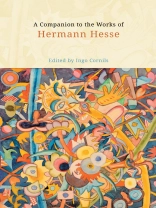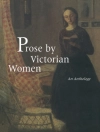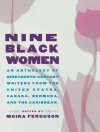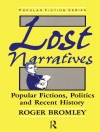New essays on the works and themes of Hesse, one of the most perennially relevant and widely-read German authors.
Today, forty years after Timothy Leary’s suggestion that hippies read Hermann Hesse while ‘turning on, ‘ Hesse is once again receiving attention: faced with ubiquitous materialism, war, and ecological disaster, we discover that these problems have found universal expression in the works of this master storyteller. Hesse explores perennial themes, from the simple to the transcendental. Because he knows of the awkwardness of adolescence and the pressures exerted on us to conform, his books hold special appeal for young readers and are taught widely. Yet he is equally relevant for older readers, writing about the torment of a psyche in despair, or our fear of the unknown. All these experiences are explored from the perspective of the individual self, for Hesse the repository of the divine and the sole entity to which we are accountable. This volume of new essays sheds light on his major works, including
Siddhartha, Der Steppenwolf, and
Das Glasperlenspiel, as well as
Roßhalde, Klingsors letzter Sommer, Klein und Wagner, and the poetry. Another six essays explore Hesse’s interest in psychoanalysis, music, and easternphilosophy, the development of his political views, the influence of his painting on his writing, and the relationship between Hesse and Goethe.
Contributors: Jefford Vahlbusch, Osman Durrani, Andreas Solbach, Ralph Freedman, Adrian Hsia, Stefan Höppner, Martin Swales, Frederick Lubich, Paul Bishop, Olaf Berwald, Kamakshi Murti, Marco Schickling, Volker Michels, Godela Weiss-Sussex, C. Immo Schneider, Hans-Joachim Hahn.
Ingo Cornilsis Professor of German at the University of Leeds.
Table des matières
Introduction: From Outsider to Global Player — Hermann Hesse in the Twenty-First Century – Ingo Cornils
Novel Ideas: Notes toward a New Reading of Hesse’s
Unterm Rad – Jeff Vahlbusch
Rosshalde (1914): A Portrait of the Artist as a Husband and Father – Osman Durrani
The Aesthetics of Ritual: Pollution, Magic, and Sentimentality in Hesse’s
Demian (1919) – Andreas Solbach
Klein und Wagner – Stefan Hoeppner
Klingsors letzter Sommer and the Transformation of Crisis – Ralph W. B. Freedman
Siddhartha – Adrian Hsia
Der Steppenwolf – Martin Swales
Hermann Hesse’s
Narziss und Goldmund: Medieval Imaginaries of (Post-)Modern Realities – Frederick A. Lubich
Beads of Glass, Shards of Culture, and the Art of Life: Hesse’s
Das Glasperlenspiel – Paul Bishop
Hesse’s Poetry – Olaf Berwald
‘Ob die Weiber Menschen seyn?’: Hesse, Women, and Homoeroticism – Kamakshi P. Murti
Hermann Hesse’s Politics – Marco Schickling
Hermann Hesse and Psychoanalysis – Volker Michels
On the Relationship between Hesse’s Painting and Writing:
Wanderung, Klingsors letzter Sommer, Gedichte des Malers, and
Piktors Verwandlungen – Godela Weiss-Sussex
Hermann Hesse and Music – C. Immo Schneider
Hermann Hesse’s Goethe – Hans-Joachim Hahn
A propos de l’auteur
Paul Bishop is Professor of German and Head of Department of German at the University of Glasgow.












